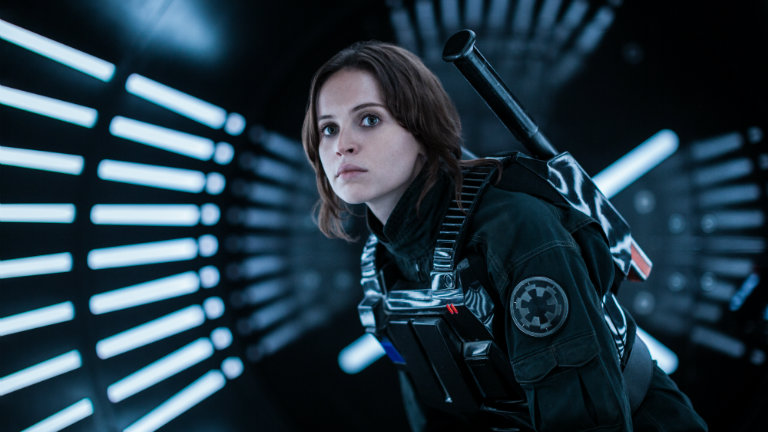Big Screen: Rogue One: A Star Wars Story
December 23rd 2016
James Ross

There’s never been a better time to be a Star Wars fan. Not only are we getting new films in the franchise without Jar Jar Binks, but the movies are being made by directors who love the series as much as we do.
This is why spin-off movies can actually be really exciting. Rather than treating these films as a sign that the franchise is dying, directors are being given the opportunity to break the mould of what a Star Wars film could be.
Rogue One is the first of those spin-offs. Hailed as the Saving Private Ryan of the Star Wars universe, it was supposed to take an even darker look at a franchise that already included Space Nazis and a super-weapon literally called the Death Star.
The film’s premise is simple. In the original Star Wars film, A New Hope, the Rebel Alliance are able to take on the Empire by exploiting a fatal flaw in the Death Star. Rogue One asks the question: how did the Rebels get those plans, and more importantly, why did they exist in the first place?
It answers those questions by telling us the story of the Rebel team who discovered the fatal flaw.
I won’t spoil the rest of the plot for you for two reasons.
1. I love Star Wars, and you should see the film, because it’s Star Wars and it fucking rocks.
2. The plot kind of sucks.

Don’t get me wrong, there are heaps of great things about Rogue One. In fact I think that the director, Gareth Edwards, has delivered the smartest and most dynamic battle scenes we’ve seen in the franchise. There’s an early sequence where the heroes fight their way through a sandy, war-torn city, which draws unmistakable parallels with guerrilla warfare in the Middle East. It’s a fascinating comparison – not only does it add depth, but it suggests a nuance to the universe that we’ve never seen before.
Could the Rebels actually be the terrorists of this story? How does that fit in to the never-ending struggle between light and dark sides of the force?
The problem is that while Edwards poses these questions through cinematography, the screenwriting never backs up the world that he’s built. The first half of the movie is hastily cut, with a meandering plot line that has very little drive to it. In the second half, the heroes become little more than vehicles for inspiring speeches and occasional quips.
The character’s motivations aren’t just hazy, sometimes they straight up contradict themselves. Worst of all, for a film that’s entire purpose was to flesh out an esoteric group of spies, they aren’t given enough meaningful interactions for the audience to give a damn about them.
The preference for style over substance left me cold, and if Gareth Edwards had been inspired by Saving Private Ryan, I think he’s missed the point. It’s the small moments that make a team-film fantastic, and the Rogue One team deserved more of them.
Rogue One is an interesting and, in some ways, brilliant exercise in transforming a Star Wars movie into a war film. But the future of the franchise? It ain’t.
Want more Big Screen? Subscribe to the podcast!





